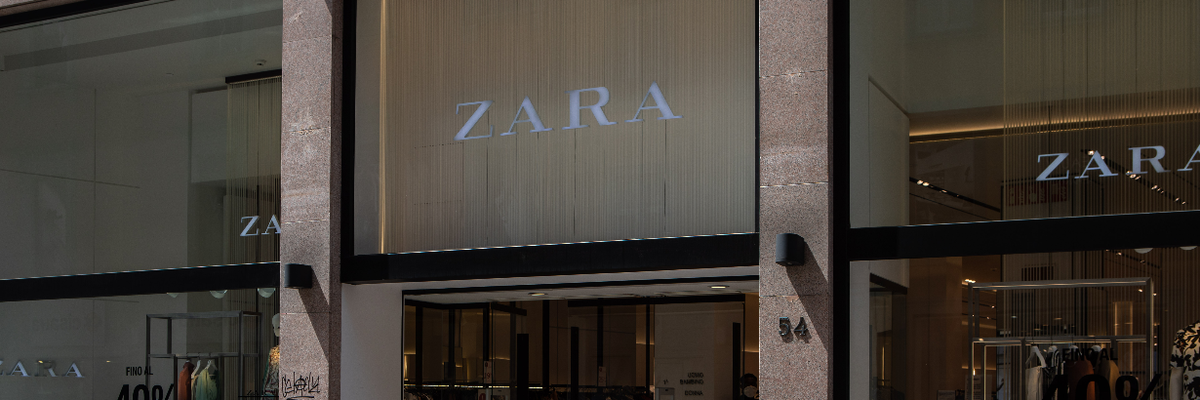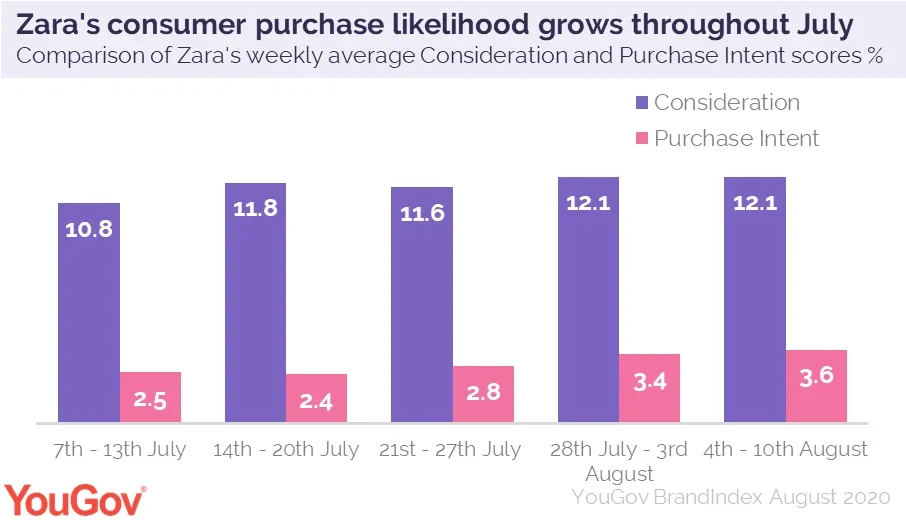
Zara’s customers return as consumers regain confidence
The real estate arm of high street fashion retailer Zara, Pontegadea, was this week accused of “bullying tactics” to deny rent reduction requests from other high street stores in the UK. An anonymous retail chain reported that Zara’s investment company has tried to add an extra year to one retail chain’s lease for every month of unpaid rent, and doubled rent for another who asked for a rent reduction.
During lockdown many businesses have been unable to pay commercial rent while doors have been closed, meaning some retail landlords have had to change payments to monthly instalments sometimes in arrears or defer rent payments altogether following the Coronavirus Act.
But where is Zara in the age of COVID-19? New YouGov data shows that recently Zara’s brand health has been improving among British consumers. BrandIndex Reputation scores for the brand (whether someone is proud or embarrassed to work for a brand) have been increasing since a dip at the end of July from 10.1 to 17.4 at the start of this week – a 7.3 point increase. This improvement in perception is significant considering the aforementioned negative press.
Similarly, Zara’s weekly average Consideration scores have increased from 10.8 in the week commencing July 7th to 12.1 in the week commencing August 4th (whether someone would consider purchasing from the brand in future). Purchase Intent scores, which indicate whether a brand is someone’s first choice to purchase from when they are next in the market, have increased by 1.1 points in the same period.

Since shops have reopened, brands have seen varying responses in how consumers are returning to pre-coronavirus habits. YouGov Profiles data shows that those who have bought clothes from Zara either in store or online in the last 90 days are more comfortable with returning to reopened clothing stores than the average Brit at 60% to 51%, suggesting there is potential for Zara to recover customers fairly quickly. Indeed Zara’s Current Customer scores have increased recently from 1.3 to 3.2 between July 28th and August 4th, indicating a surge of customers in August.
At a time when retail brands are facing heightened scrutiny after the modern slavery claims against Boohoo, to see increases in consumer purchase likelihood and customer footfall gives Zara an advantage.
Image: Getty